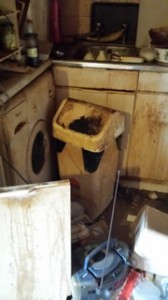Fleas in a Derelict House
Fleas in a Derelict House:
A Housing Association called us out to deal with a flea problem in Swindon. As you can see from the pictures this house was truly derelict. The problem was that fleas were biting the people sent in to clear the house.
There are many problems dealing with fleas and other insects in these situations. The first is that insecticides only work properly on clean surfaces, so not a good start. The other major problem is that to eliminate a flea infestation takes time, typically 2 – 3 weeks occupation in a heated environment.
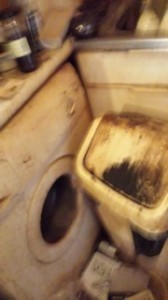
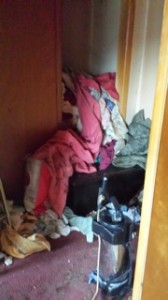
This house was cold, it was unoccupied and it is filthy. We always ask our customers with fleas to vacuum thoroughly before treatment and to keep the floor areas clear. Afterwards we ask that the place is kept warm and occupied, reduce humidity by leaving windows slightly open and if the customer has a cat or dog then to keep them in and give them the freedom of the house (providing that they have been treated with Program, Frontline or a similar product) the reason for this is that as the flea infestation takes tome to die out, fleas will still be present, so it is more desirable that the fleas bite the pet rather than people (if there is a choice they will prefer to feed on a cat or dog in preference to humans).
There is also the problem of the Flea Pupa hatching. Flea eggs hatch into grubs that feed on flea faeces and other organic debris. Then they pupate but have the ability to wait, fully protected in the pupa case until the conditions are right, i.e. there is food in the way of an animal or human and the environment is warm enough for them to operate.
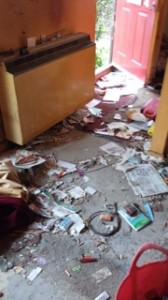
Treating a derelict house for fleas will probably fail for the reasons given. However the treatment will still kill a high percentage of the flea infestation and provide protection from most of the fleas for the workers doing thew house clearance.
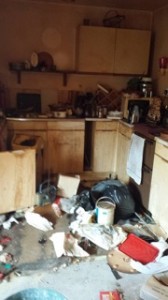
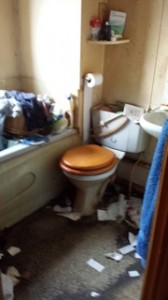

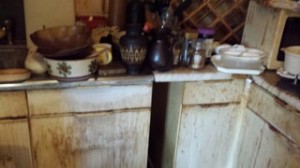
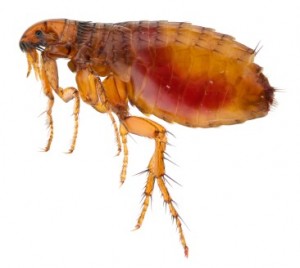
For advice or a pest control treatment please phone PEST UK on 0330 100 2811. Alec Minter
NEXT/PREVIOUS:
Pigeon Netting in Ascot Berkshire »
The Small Yellow Cluster Fly «

